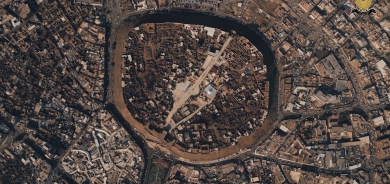Kurdish Asylum Seeker’s Death Exposes Conditions at Australian Refugee Camp

TORONTO, Canada – The death of a 23-year-old Iranian-Kurd during a riot at an Australian detention center for asylum seekers has exposed conditions at the Manus Island facility, which a former interpreter has described as worse than a war zone.
Reza Barati, who died of multiple head injuries, was sent to the Papua New Guinea (PNG) camp in July, after arriving in Australia as an asylum seeker.
He was killed earlier this month, and many other detainees were injured, after violence broke out between guards at the detention center and some of the 1,300 asylum seekers that Australian authorities have banished there as their papers are processed.
The incident, and reports of conditions at the center, have caused deep concern among humanitarian workers in Australia and worldwide.
Tara Fatehi, the founder and director of the Australian Kurdish Youth Society told Rudaw: “We are locking up innocent civilians and breaking international law, ironically making us criminals, not them. Yet the media and politicians are making this a political football to win votes.”
Fatehi, who is a PhD student studying medicine and a volunteer working with refugees and Kurdish children, was the speaker at a candlelight vigil in Adelaide. “This is an absolute tragedy for Australia. This country is built on immigrants. Our ancestors arrived by boat in the country,” she said.
Azita Bokan, an interpreter working on Manus Island during the violent clashes who lost her job after protesting at the guards’ treatment of detainees, has decided to speak up. In an interview with ABC Sydney, Bokan described the situation of asylum seekers on Manus as “horrendous.”
“Even though I have been to Nauru before and I warmed up a little bit to the condition of the bad camps, I can say that Manus is just a different scale. It is not only the heat, the diseases, the conditions, it's the morale: Mentally, everyone is pretty much not really able to participate and integrate in any society. They are mentally gone. There has been a lack of everything…. Everyone is having massive pain.”
Yet, no detainee complains, Bokan said. She explained that was because they were warned they had to be on their best behaviors to be granted asylum.
“You know, for someone from outside, when I've gone in I said 'I would prefer to be dead today in a camp than live like this for a day.' But surprise, surprise, everyone was so, so quiet. For days I saw these people living in the best of times, they act (so quietly). Except at nighttime they sing as a bit of a protest, but it's a calm protest. Immigration would not retaliate. But during the day they are just quietly sitting somewhere like they have been injected with some drug - they do nothing.”
Bokan reported that just a few days prior to the riot, the detainees were told they would never be able to set foot in Australia or anywhere else. Those people had nothing but hope, and when that was taken away from them, they were left with nothing, she explained.
“Immigration came up with the idea to say that we are announcing again that you will not see the land of Australia ever, full stop! You are also not going to have a chance on a third country because there's no third country that has ever stepped forward. Also, the PNG people and the country and condition of economical situation in PNG will never be able to assist you.”
The former interpreter said she had lived through the Iran-Iraq war and the Iranian revolution, but what she saw in Manus Island did not compare to what she had previously seen.
The UN High Commissioner for Refugees (UNHCR) released a report earlier this month, echoing “significant inadequacies in the transfer, treatment and processing of asylum-seekers transferred from Australia to the Assessment Centre at Manus Island, Papua New Guinea.”
It reveals that 34 children and their families are held captive at the Manus Island center.
“UNHCR’s report found that the current policy and practice of detaining all asylum-seekers on a mandatory and indefinite basis, without an individual assessment or possibility for review, amounts to arbitrary detention, which is inconsistent with the obligations of both Australia and PNG under international human rights law.”
Barati’s family want answers from the Australian government. “First, we want his body to be returned to Iran and then we want answers, what happened to him? What did they do to him?” Britain’s Guardian newspaper quoted a family member as saying from Iran.
Despite the pain and hardship, Barati had told his family that he prefers to stay in an Australian prison for another decade than to return to Iran. He was raised in Lumar, one of many impoverished Kurdish cities in western Iran, in close proximity to the Iraqi border.
Australians are deeply concerned about the event and large candlelight vigils have been held.
Victoria Roll, a blog writer for the Australian Independent Media Network, had this to say in an open letter to Australian immigration minister Scott Morrison: “No person with a shred of humanity, the sort of humanity needed to qualify as a human, could ever condone what you are doing to the world’s desperate asylum seekers who come to Australia begging for help.”
Barati’s death has once again revealed the sufferings of asylum seekers worldwide, among them Kurds. Activists decry that governments willingly accept investment-immigrants from corrupt governments like Iran, but refuse to bother much with the plight of poor asylum seekers like Reza Barati, who have nowhere to go and no place to turn.
Rudaw














